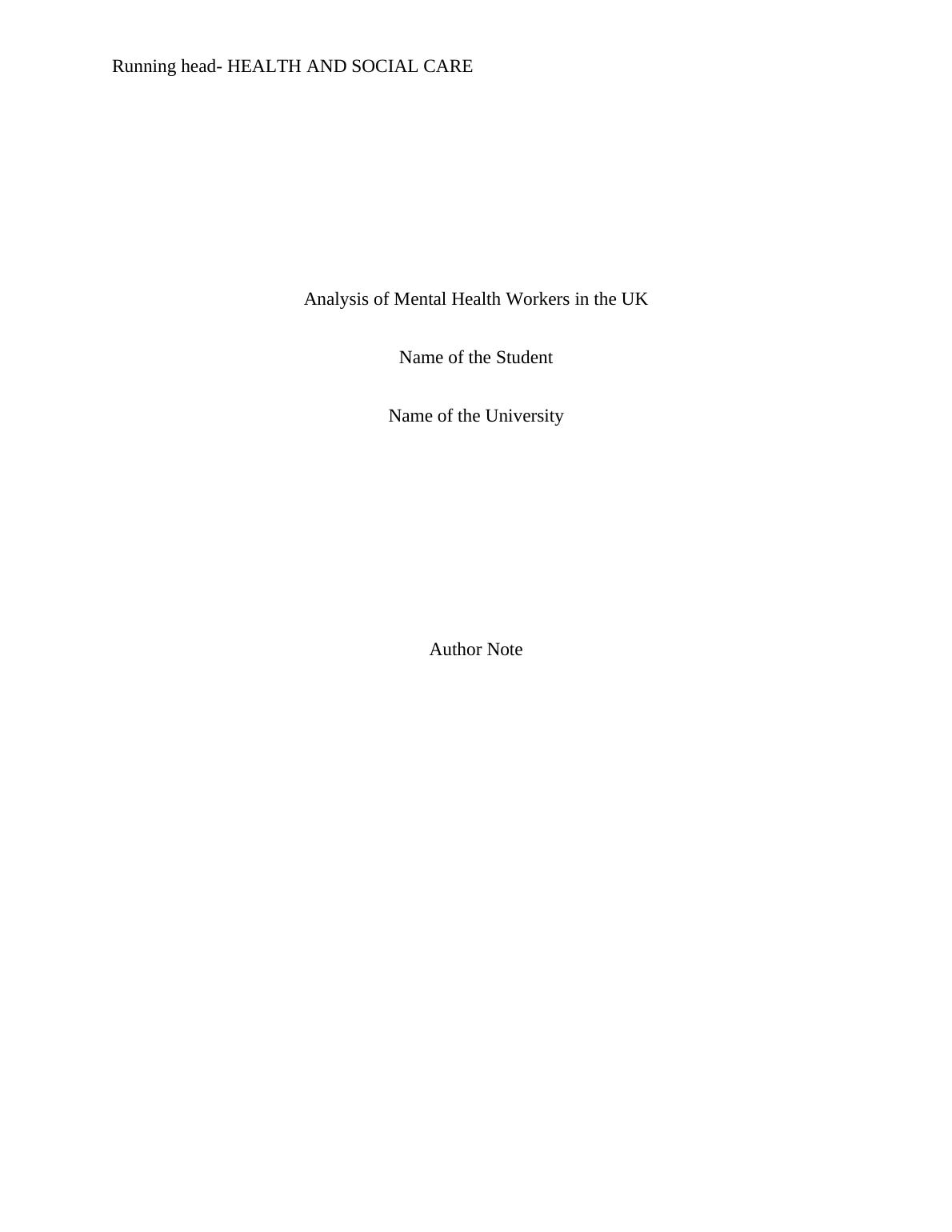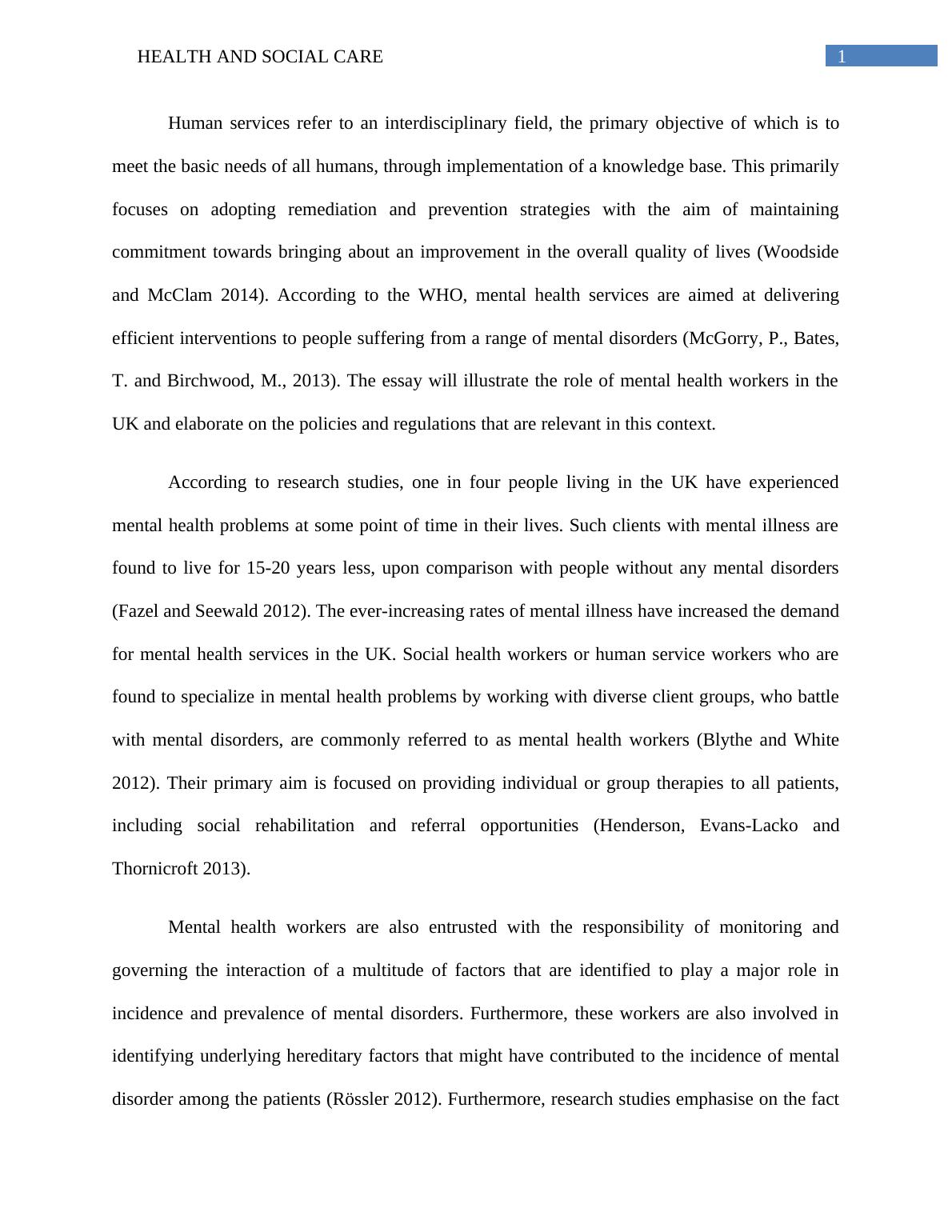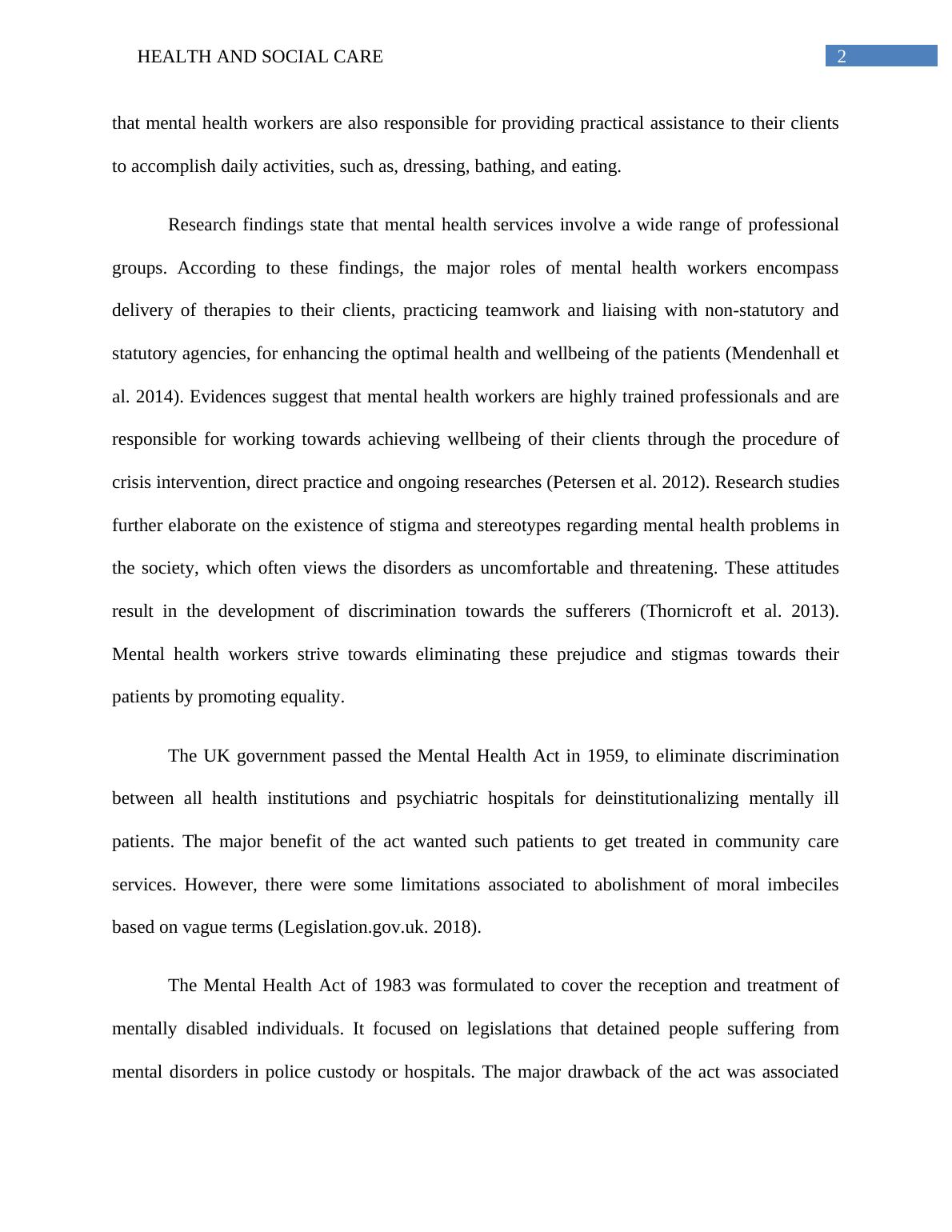HEALTH AND SOCIAL CARE 4 Running head- HEALTH AND SOCIAL CARE Analysis of Mental Health Workers in the UK Name of the University Author Name
Added on 2021-04-24
8 Pages1863 Words210 Views
Running head- HEALTH AND SOCIAL CAREAnalysis of Mental Health Workers in the UKName of the StudentName of the UniversityAuthor Note

1HEALTH AND SOCIAL CAREHuman services refer to an interdisciplinary field, the primary objective of which is tomeet the basic needs of all humans, through implementation of a knowledge base. This primarilyfocuses on adopting remediation and prevention strategies with the aim of maintainingcommitment towards bringing about an improvement in the overall quality of lives (Woodsideand McClam 2014). According to the WHO, mental health services are aimed at deliveringefficient interventions to people suffering from a range of mental disorders (McGorry, P., Bates,T. and Birchwood, M., 2013). The essay will illustrate the role of mental health workers in theUK and elaborate on the policies and regulations that are relevant in this context.According to research studies, one in four people living in the UK have experiencedmental health problems at some point of time in their lives. Such clients with mental illness arefound to live for 15-20 years less, upon comparison with people without any mental disorders(Fazel and Seewald 2012). The ever-increasing rates of mental illness have increased the demandfor mental health services in the UK. Social health workers or human service workers who arefound to specialize in mental health problems by working with diverse client groups, who battlewith mental disorders, are commonly referred to as mental health workers (Blythe and White2012). Their primary aim is focused on providing individual or group therapies to all patients,including social rehabilitation and referral opportunities (Henderson, Evans-Lacko andThornicroft 2013). Mental health workers are also entrusted with the responsibility of monitoring andgoverning the interaction of a multitude of factors that are identified to play a major role inincidence and prevalence of mental disorders. Furthermore, these workers are also involved inidentifying underlying hereditary factors that might have contributed to the incidence of mentaldisorder among the patients (Rössler 2012). Furthermore, research studies emphasise on the fact

2HEALTH AND SOCIAL CAREthat mental health workers are also responsible for providing practical assistance to their clientsto accomplish daily activities, such as, dressing, bathing, and eating. Research findings state that mental health services involve a wide range of professionalgroups. According to these findings, the major roles of mental health workers encompassdelivery of therapies to their clients, practicing teamwork and liaising with non-statutory andstatutory agencies, for enhancing the optimal health and wellbeing of the patients (Mendenhall etal. 2014). Evidences suggest that mental health workers are highly trained professionals and areresponsible for working towards achieving wellbeing of their clients through the procedure ofcrisis intervention, direct practice and ongoing researches (Petersen et al. 2012). Research studiesfurther elaborate on the existence of stigma and stereotypes regarding mental health problems inthe society, which often views the disorders as uncomfortable and threatening. These attitudesresult in the development of discrimination towards the sufferers (Thornicroft et al. 2013).Mental health workers strive towards eliminating these prejudice and stigmas towards theirpatients by promoting equality. The UK government passed the Mental Health Act in 1959, to eliminate discriminationbetween all health institutions and psychiatric hospitals for deinstitutionalizing mentally illpatients. The major benefit of the act wanted such patients to get treated in community careservices. However, there were some limitations associated to abolishment of moral imbecilesbased on vague terms (Legislation.gov.uk. 2018). The Mental Health Act of 1983 was formulated to cover the reception and treatment ofmentally disabled individuals. It focused on legislations that detained people suffering frommental disorders in police custody or hospitals. The major drawback of the act was associated

End of preview
Want to access all the pages? Upload your documents or become a member.
Related Documents
Mental Health: Trauma-Informed Care and Practicelg...
|12
|3261
|273
MENTAL HEALTH IN THE UNITED KINGDOM.lg...
|8
|324
|303
Essay on Mental Health & Intellectual Disabilitylg...
|8
|2726
|71
Mental Health for Older Adults: Implications of Electroconvulsive Therapylg...
|12
|3254
|482
Schizophrenia: Impact on Young Males and Interventions Usedlg...
|9
|2404
|20
Mental Health Nursing: Holistic Care, Assessment, and Interventionslg...
|15
|4149
|101
